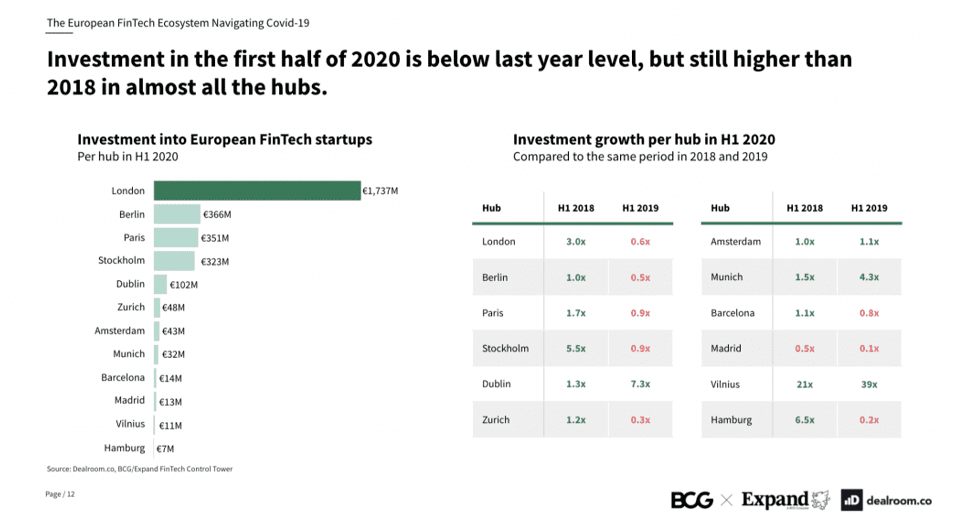With 2020 coming to an end and vaccination gaining momentum, Martins Sulte, CEO of Mintos, has shared his insights into what the alternative investments market might look like in 2021
December 21st, 2020. 2020 has been a tumultuous year for investors. With the COVID-19 pandemic shaking the markets, uncertainty has become the new normal, leading every step of the way. Yet with the new year coming and a vaccine already in place, many investors are starting to predict what 2021 has in store for the alternative investments market.
Martins Sulte, CEO and Co-founder of Mintos, the leading alternative investment platform for investing in loans in Europe, has shared his insights into what to expect from the alternative investments market in 2021.
Overall fintech sector growth
A recent study estimated that despite the pandemic, 12 out of 13 fintech sectors reported year-on-year growth for the first half in 2020, compared to the same period in 2019. According to Mr Sulte, the fintech sector will grow even more next year.
“Fintech is already booming, but the market has yet to reach its peak and will continue growing throughout the next year,” said Mr Sulte. “Our own growth plans involve Mintos becoming a regulated marketplace, which will open even more opportunities for growth.”
Mintos itself has just finished its first-ever crowdfunding campaign on Crowdcube, attracting over 7000 investors and raising €7.2 million, the largest amount ever raised in continental Europe.
The adoption and investment into startups developing technology and solutions for financial institutions, SMEs or personal finance is steadily increasing, despite the dip in investment numbers this year, 2020 investment in fintech numbers were higher than in 2018 in most of the EU.

More diversified portfolios
The pandemic has shown the importance of having a well-diversified portfolio. For example, when the stock market crashed in March, those that had diversified their portfolios with alternative assets like bonds or loans managed to stay afloat and avoid major losses. A number of industry experts have made bolder claims recently arguing that alternative assets will play a more significant role in portfolio management in coming years as means of better portfolio diversification.
“If anything, 2020 should have taught investors that well-established principles like investing for the long-term with a low-cost diversified portfolio and only checking your investment balance occasionally might not be the safest bet afterall,” said Mr Sulte. “I think that in 2021 investors will pay extra attention to see how they can future-proof their portfolios by diversifying their investments across various assets. Alternative investment options can be diversified further with many options and risk variability to choose from.”
More regulation efforts
Many fintechs around the world are approaching the so-called maturity of becoming regulated. While in 2020 most of them were lacking the necessary regulatory support and faster approvals for financial services Mr Sulte thinks that 2021 will see an increasing number of fintechs embracing regulatory measures.
“Going forward, the competition will become stronger because a lot of fintechs are looking at regulation as a way to reassure their clients and bring more clarity, transparency and safety,” said Mr Sulte. “As for new and small platforms, it will be more challenging for them to stay in the game if they refuse to become regulated.”
In the case of Mintos, the company is expecting to acquire both the Investment Firm and the Electronic Money Institution licenses in the coming months. Both licences will allow Mintos to grow its business and scale its clients base.
Slow value regrowth
The pandemic has had its toll on all investment markets, including alternatives. Mr Sulte noted that though there have been initial signs of steady regrowth by numbers of investors and volumes of investments made, it will take some time for investments to return to pre-pandemic levels.
“With the vaccine arriving in the majority of countries next year, optimism is felt across the investment markets,” said Mr Sulte. “Many investors will test what works for them on a smaller scale and look at sectors that are slated to rebound the fastest. At Mintos, we’ve seen very stable albeit slower investing this year, which can be interpreted as more cautious investing. This is likely to continue into 2021 with less focus on yield hunting, but more care in portfolio diversification, which will make the value regrow slower.”
More support for financial literacy
2020 showed the importance of continuously building the awareness and understanding of how investing works. Mr Sulte said that while many retail investors have learned a great deal about alternative investing, new investors join each day, meaning that already more people are aware of alternative investing possibilities and are eager to learn more about it.
“It is the users’ pains, needs, and demands that drive the development of the financial industry,” said Mr Sulte. “Financial literacy can be a life-changer, impacting everything from getting a college education to starting a business. At the macro level, it can help bridge the wealth gap and support economic mobility. Since an increasing portion of the market understands the significance of financial literacy, we will see more efforts to support the new coming investors in 2021.”
Mr Sulte concluded that while many uncertainties about the next year still linger, fintechs are generally known for their agility in terms of innovation and the ability to adapt to changing demands, which allows them to make the most of unexpected opportunities like the current pandemic.
“One thing is already clear: after darkness always comes the light, and knowing the immense potential alternative investments have, their exceptional flexibility, and the important role they play, it is safe to say that they are here to stay for the long haul,” he added.









